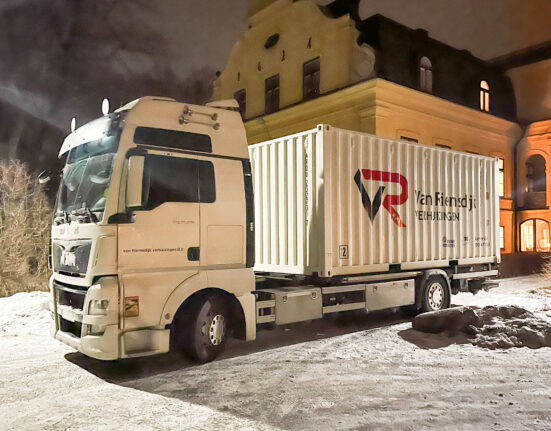In this article, Lysanne looks at the issue of homesickness and the fact that it may be a sign that your internal adjustment mechanism is suffering from overload. It is not so much about missing the home we chose to leave, but about feeling temporarily exhausted by being an incomer in a new home that we have not yet made our own.
Accepting and dealing with homesickness is part and parcel of international life. Homesickness includes everything from missing your favourite kind of peanut butter to feeling cut-off and lonely. And while you might try and seek comfort from friends and family back home, you sometimes get the distinct feeling that they don’t get how hard this is. Feeling homesick is mainly to do with missing the familiar, the sense of everything being ‘as it should be’.
In some countries you might thrive; in others you might feel the doors are slowly closing one by one. If this is how you feel, whether you are here with a Swedish partner or as part of a globe-trotting couple, you need to speak out. It is neither a failure nor a fault on your part.
Back to being small and vulnerable
When you leave your own culture and language, you activate an inborn internal adjustment mechanism that helps you make sense of the new environment. Some people have very powerful and sophisticated internal ‘antennas’ that pick up every nuance while others get by with less focus on what is different. This cultural adjustment mechanism uses the very same developmental structure that once helped you to learn about the world as a child. Look at little babies and infants; they are constantly checking your behaviour to see how things are done, then copying that behaviour to great acclaim from their elders; the greater the effort, the bigger the reward. When you were little, you learnt a language, you learnt how to eat with a knife and fork, chopsticks or your fingers and you learnt that a smile can charm, amuse and defuse. By copying, you were able to fit in; you were also rewarded, accepted and taken care of.
But while you have been running around SFI, ICA and Arbetsförmedlingen, this old developmental mechanism has been doing overtime, without any of the praise or the reward of acceptance for now. No, now it is just expected of you and considered normal. No wonder many internationals feel like they’ve been running a thankless psychological marathon in the first year(s).
Curing homesickness – seeking the familiar
A friend of mine left Holland for the UK and was sure he would never want to live in the Netherlands again. And indeed, today he is still an expat and enjoying life abroad. However, the other day he wrote to me and said, “just walking down the streets of any town in Holland I feel a sense of unquestionable belonging; no one asks me how long I’ve lived there or compliments me on my language skills. I can just ‘be’, blend in, and feel safe”. The blues you feel for home, along with the idealisation of the places and the people to which you (once) belonged are just the symptoms of what I call ‘learning to be here’-sickness. Seen in this light, a trip home can be a way of offering this internal sense-making mechanism a break, giving the psyche time to rest and recuperate.
As a grown-up in your new environment, it can feel like you are a bit of driftwood, bobbing about on an unfamiliar ocean…This is a time when you might latch on to anyone who looks like they want to be your friend, and the time when Swedish partners carry the burden of representing every lost attachment figure from back home.
And it also helps us to keep the idealisation of home to a minimum. It is what it is, with all its faults and all its comforts, just like your new home will be. Pack an extra bag when you go home and make sure you bring back the things that are sweet and familiar; whether it be Reese’s Pieces or Cadbury’s Dairy Milk. Celebrate the festivals that are part of you and your culture. Becoming part of the Swedish culture does not mean having to give up on your own.
It hurts too much?
I have heard people express a fear of going ‘home’ because they feel it may make it harder to come back to their new lives in Sweden and/or they are afraid that they won’t ‘fit in’ the way they used to. I’ve already talked about the dangers of idealising home by not letting yourself go back, but there is also a hidden grieving process involved in leaving the attachments of one home and building new connections to another.
Attachment and bonding are important aspects of a young child’s life; a secure attachment to ‘my mum/dad/caregiver’ gives a sense of inner security, often allowing you to take big adventurous leaps out into the world. However, as a grown-up in your new environment, it can feel like you are a bit of driftwood, bobbing about on an unfamiliar ocean. ‘Who will take care of me, who can I fall back on?’ This is a time when you might latch on to anyone who looks like they want to be your friend, and the time when Swedish partners carry the burden of representing every lost attachment figure from back home.
So it is important that you understand that you are grieving and feeling vulnerable since you are away from relationships that may have given you security up till now. Grief is a normal process that helps you to find a special place in your heart for something that is no longer an everyday part of your life. It often works by shifting the emotions to something new, be it a loved one, a well-tended garden or a much loved job. It is why children who are separated from their caregivers for the first time often have a so-called transitional object, like a teddy bear, or a piece of cloth. These objects symbolise the temporarily lost connection with the attachment figure and help recreate an internal sense of their love and care for them.
Chronic here-sickness
And then of course, there is a constant longing that doesn’t go away, even after five or ten years of really trying to make a go of it in your newly adopted country. A nagging sense that chips away, day in day out, that somehow you are in the wrong place, living the wrong life and that the balance between a healthy integration and losing the essence of who you are has been lost, in favour of the latter. You may feel guilty, shameful, as if you have failed some great cosmic test of resilience. However, not every country, culture, and social structure suits every personality. In some countries you might thrive; in others you might feel the doors are slowly closing one by one. If this is how you feel, whether you are here with a Swedish partner or as part of a globe-trotting couple, you need to speak out. It is neither a failure nor a fault on your part.
In summary
Your internal adjustment system, combined with a healthy process of grieving, is more than capable of taking care of you in the initial years. Just remember to let it have a nice little break from working so hard, and bathe it in the familiar, whether it is watching a film in your own language, cooking an ethnic dish or meeting up with people from ‘home’. And if you can, remember to plan a little trip back to the old and the familiar once in a while so that you can just enjoy being quietly still in the effortless familiarity of your roots.
DISCLAIMER
These articles are a composite of my personal, my colleagues’ and
clients’ experiences in order to protect recognition. All therapeutic
meetings are Turning Point are confidential, and specific content would
never be shared in a public forum.
If you have any specific questions about marriage in a foreign land, or indeed other issues that you would like Lysanne to consider in her articles, please contact her here (anonymity will always be preserved).
Lysanne Sizoo is the founder and director of Turning Point, the only international counselling centre in Stockholm. In 2008 she obtained her psychotherapy license from the United Kingdom Council for Psychotherapy. She has been practising as a counsellor and psychotherapist since 1997, specialising in the field of cross cultural issues, as well as fertility, bereavement, parenting, anxiety and stress management.
Article: Lysanne Sizoo
Photo Credit – Maiden/artist name: Annaliese Comelab













